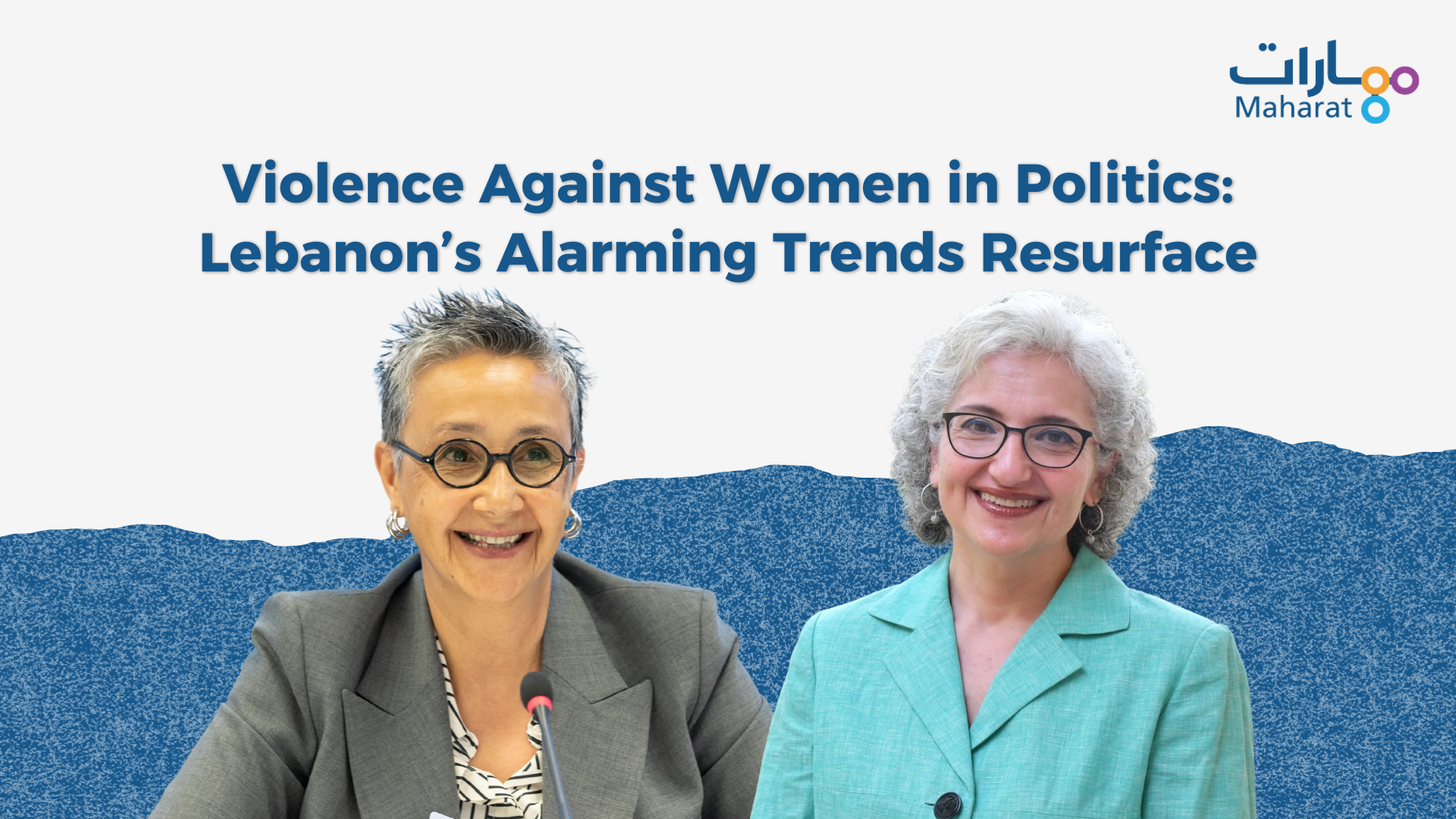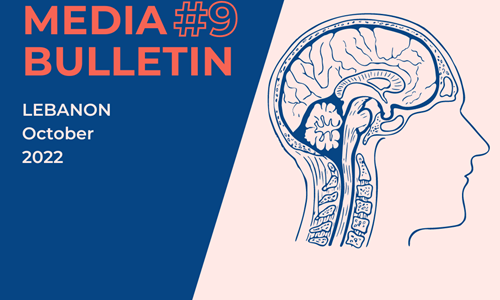
Violence Against Women in Politics: Lebanon’s Alarming Trends Resurface
🧠 Why it matters:
Despite increased participation of women in Lebanese politics, systemic violence against women in politics (VAWP) continues to manifest through smear campaigns, sexist attacks, and institutional backlash. Recent incidents targeting MP Najat Aoun and the Minister of Education Rima Karami show how deeply entrenched misogyny remains in public and political discourse.
📍 Driving the news:
1- 🔎 Case in Focus: MP Najat Aoun Targeted After Environmental Warning
Following her visit to the President of the Republic, Joseph Aoun, on April 10, MP Najat Aoun made a public statement—shared on her accounts and via the official X (formerly Twitter) account of the Lebanese Presidency—calling for the urgent declaration of a water emergency due to critically low rainfall this year. In her statement, she emphasized the importance of adopting concrete measures to preserve water resources, saying:
"لضرورة إعلان حالة طوارئ مائية، نظراً لقلّة كميات المتساقطات هذا العام."
Instead of sparking a policy-focused discussion on climate-related water challenges, her statement became the subject of a wave of online abuse and sexist attacks. The Arabic term “متساقطات” (precipitation) was deliberately distorted into the offensive word “ساقطات” (loosely translated as "bitches")—a clear attempt to humiliate and discredit her using gendered language.
The situation escalated when MP Georges Atallah, a member of the Free Patriotic Movement (FPM), quoted her statement mockingly, saying that the issue lies not in the amount of rainfall ("كمية المتساقطات") but in the number of "ساقطات"—explicitly referring to women politicians who, in his view, obstructed past dam projects. This inflammatory and sexist remark ignited a broader, politicized smear campaign, mostly fueled by FPM supporters online.
Many of these attacks revived partisan narratives, accusing MP Aoun and other independent MPs of blocking previous infrastructure projects, including the controversial Bisri Dam—backed by former ministers affiliated with the FPM and its leader, Gebran Bassil. However, the critique was not framed as policy disagreement, but rather as a gendered assault, using misogynistic language to undermine her legitimacy and portray her as a saboteur rather than a policymaker.
It is to note that the mentioned post was later removed from X account of MP Atallah.
2- 🧯 Case in Focus: Minister Rima Karami Faces Backlash Over Inclusive Student Survey
An attempt to introduce a simple, inclusive data category in a student survey triggered a wave of sexist and ideologically driven attacks against Minister of Education Rima Karami—demonstrating how gender-sensitive governance is often met with disproportionate hostility when led by women in positions of power.
Minister Karami approved a national survey targeting Lebanese students, which included a standard section on the student's sex, offering three options: male, female, and “prefer not to say.”
This addition—reflecting global best practices in data collection—sparked immediate backlash from conservative political and religious figures, most vocally from MP Edgard Traboulsi, who objected during a session of the Parliamentary Committee for Education and later posted the following statement on X (formerly Twitter):
"اعتراضي الشديد على استبيان وطني... والذي فيه ادخلت الوزارة خانة ثالثة... يمتنع الطالب عن تحديد جنسه... أكدنا للوزيرة رفضنا التام لفكرة الاستمارة وخلفيتها باسم الشعب اللبناني والقيم الدينية والاخلاقية..."
Traboulsi claimed that this move violated “natural law and divine order,” accusing the ministry of promoting ideas that contradict Lebanon's religious and moral values.
Karami’s decision—despite being retracted as per MP Traboulsi statement on X—prompted an online campaign filled with gendered, sexist, and defamatory language, targeting her character and motives.
- The attacks transcended partisan lines, uniting conservative-leaning accounts from various political affiliations.
- She was accused of “planting dangerous ideas” and “promoting values that shake Lebanese society.”
- Much of the discourse went beyond disagreement with the policy and turned into a personalized assault questioning her legitimacy, morality, and role as a woman in leadership.
📊 Our take:
These incidents exemplifies a wider trend of Violence Against Women in Politics (VAWP) in Lebanon, where public discourse—especially on social media—regularly turns toxic when women assert themselves in political or technical matters. It underscores the urgent need for institutional measures such as a parliamentary code of ethics and political party accountability to curb such abuses.
These case exemplify patterns documented in Maharat Foundation’s previous reports produced by Maharat and Madanyat—including the Marsad Gender Monitoring Report and #MeToo in Politics—which show how women in politics who push for progressive policies often become lightning rods for social and political backlash.
✅ What needs to happen:
- Institutional condemnation of sexist discourse in policy debates, especially within official bodies like parliamentary committees.
- Adoption of a code of ethics to protect women in public office from ideological and gender-based defamation.
- Support for inclusive policy design, free from fear of political or personal retaliation.
🧾 What the data says:
-
Maharat Foundation together with its partner Madanyat has long monitored VAWP trends, documenting how digital spaces, political debates, and institutional responses often enable or ignore violence against women in public life.
- In the #MeToo in Politics report (link), Maharat and Madanyat highlighted how social media is weaponized to silence women politicians. - - The Marsad Gender Monitoring Report (link) revealed that VAWP is rarely addressed by institutions, despite clear patterns of harassment and defamation.
📣 Between the lines:
These attacks are not isolated—they reflect a coordinated effort to discourage women from occupying or transforming public roles. Criticism masked as “debate” or “tradition” often conceals deeper hostility toward gender equality and women's agency in decision-making spaces.
✅ What we’re calling for:
- Adopt a parliamentary code of ethics to hold MPs accountable for sexist or abusive behavior.
- Ensure party leadership and political institutions condemn VAWP, including digital hate campaigns.
- Strengthen institutional support and public messaging to protect women in politics and encourage inclusive political discourse.
- Share data and resources across platforms to build informed, collective action.





